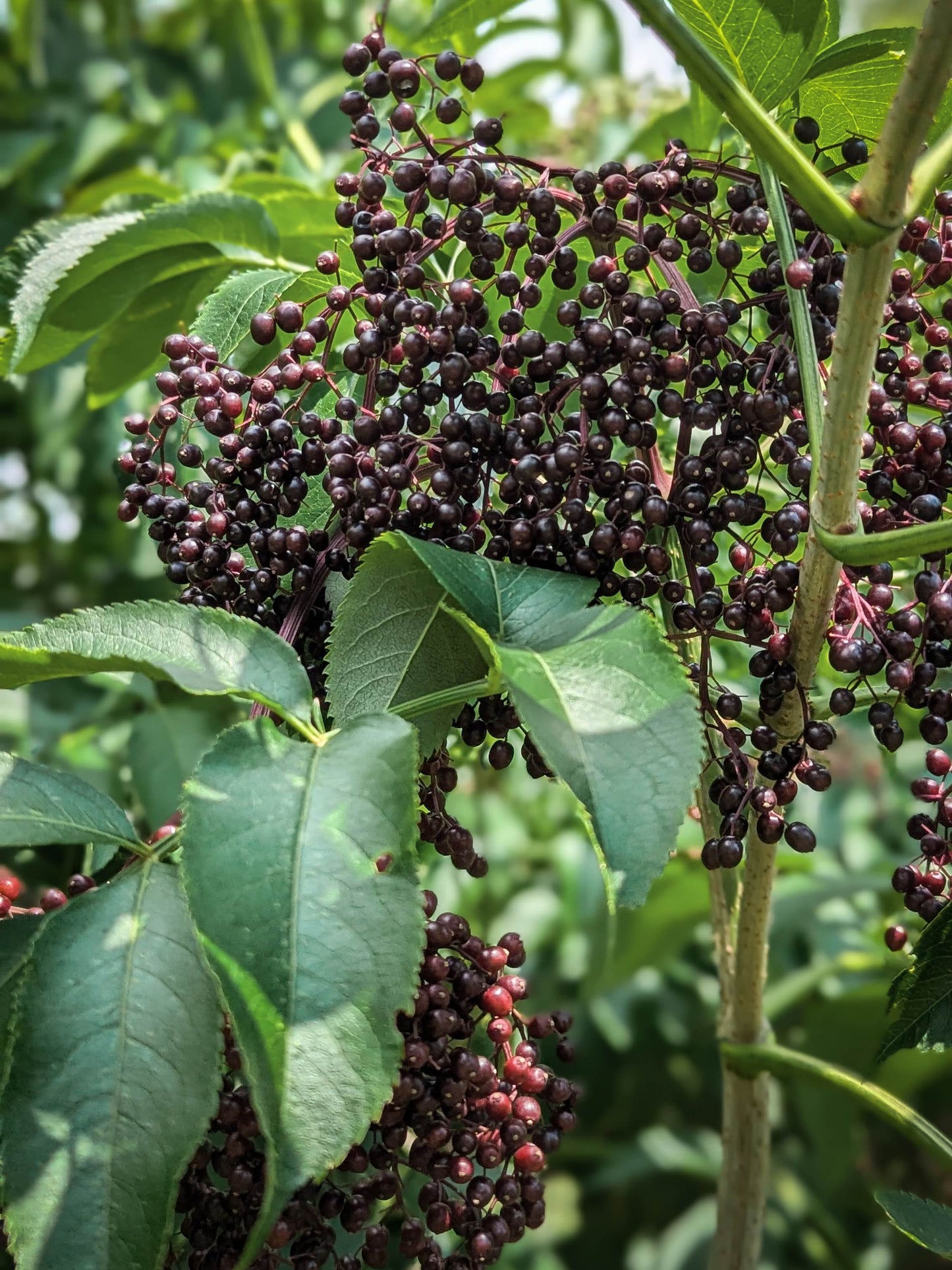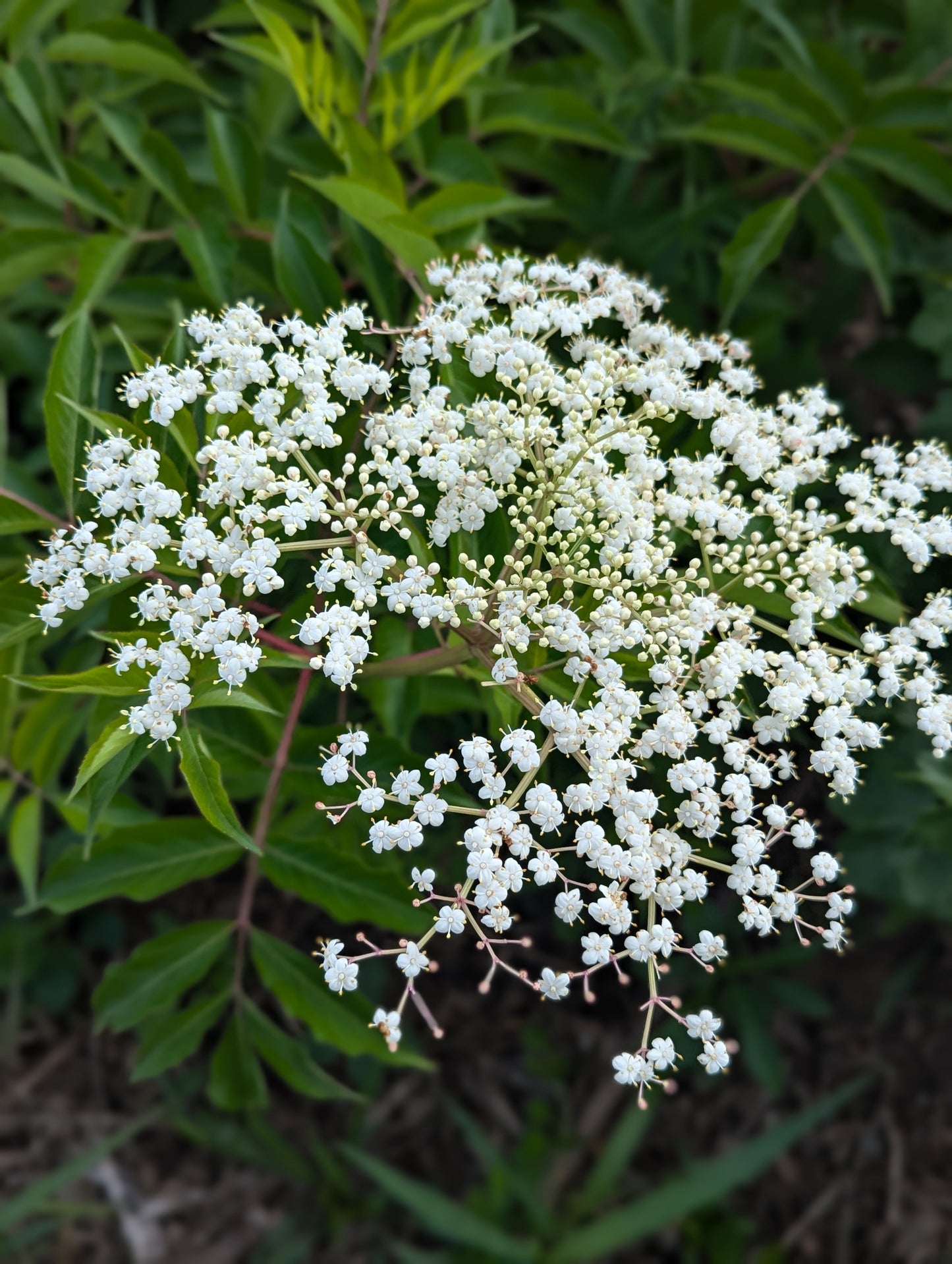Humble Roots Tree Farm
Elder
Elder
Couldn't load pickup availability
Elderberry (Sambucus spp.)
Elders are wonderful multi use plants. The most commonly cultivated species are S. canadensis (which is native) and S. nigra (which is not native). Many cultivars of both species have been bred for fruit production. Elderberries are edible (when cooked or fermented) and taste good, having a sweet, lightly tart flavor. Besides being used as an immune system booster, elder berries can be made into jams and jellies, baked into pies, or juiced for a very wonderful wine. The blossoms, which are medicinal and edible, have many of the same health benefits of the berries and can also be used to flavor beverages, fried as fritters or used in baked goods. Besides the usefulness for people, the entire plant offers tremendous wildlife value as the foliage is browsed by deer, the blossoms are wonderful for pollinators and the berries are a favorite of various birds.
Elders are very fast growing, medium sized shrubs that can grow up to 15 feet tall and can be much wider if allowed to spread by root suckers. Due to their growth rate and that many elders fruit on first year wood, coppicing is an excellent management system. By coppicing an entire plant back to the ground every so often the shrub is kept at a manageable size for harvesting fruit and the lifespan of the plant can be extended greatly versus leaving it unpruned. Elders prefer moist soil and can even tolerate clay so long as the site drains adequately. While fruit production will be best in full sun, elders can easily tolerate partial shade. Elders are partially self fertile, but for best fruit production plant several varieties to ensure pollination.
Our nursery sells bare root plants grown from hardwood cuttings. We have three cultivars available:
‘Adams’ (S. canadensis): Large clusters of wonderful berries. Ripens a couple weeks after ‘John’. Grows to 8-10’ tall. Plants that are at least 14” tall. We also have a few large plants that are available for local pick up only. Hardy to zone 4.
‘John’ (S. canadensis): Large highly flavored fruit. Ripens a couple weeks before Adams. Grows to 8-10’ tall. Plants are at least 14" tall. We have a few large plants that are available for local pick up only. Hardy to zone 4.
'Nova' (S. canadensis): The tag of the parent plant has been lost, but we are fairly confident it is 'Nova', which is a fairly compact plant (8’ tall) that produces large berries with great flavor. Ripens very early. We have small plants and large plants that are shippable and we also have large plants that are for local pick up only. Hardy to zone 4.
Note: large elders may be pruned to accommodate shipping. This will not negatively affect the plant at all.
Elder cannot be shipped to Oregon.



